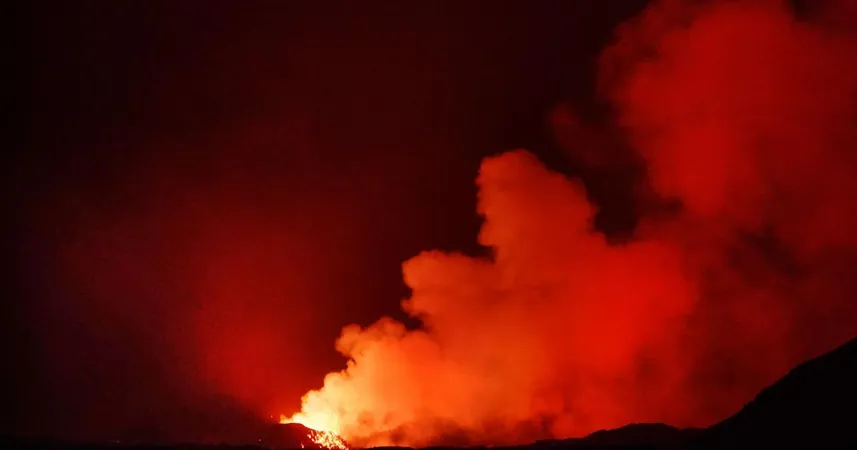
Unveiling Earth's Climate History: What Secret Lies Beneath?
2025-01-06
Author: Nur
In a groundbreaking study, researchers have uncovered fascinating details about the Earth's climate history, shedding light on the crucial role of carbon dioxide (CO2) levels during significant climatic shifts. The team discovered that the Late Palaeozoic Ice Age witnessed persistently low CO2 concentrations until a drastic increase 294 million years ago, initiated by massive volcanic eruptions. This surge of greenhouse gases not only warmed the planet but also facilitated the melting of extensive ice coverage, marking a pivotal transformation in Earth’s climate.
Research Significance
Dr. Hana Jurikova, the lead researcher from the University of St Andrews, emphasizes the importance of these findings: “The conclusion of the Late Palaeozoic Ice Age represented a major evolutionary turning point. It was during this time that the planet began to experience the rise of reptiles—an evolution potentially compelled by shifting carbon dioxide levels.”
Methodology of the Study
The research team employed advanced techniques to analyze the chemical fingerprints embedded in fossilized brachiopod shells—ancient, clam-like organisms that have survived almost unchanged for millions of years. These shells serve as time capsules, preserving invaluable data about past environmental conditions.
Findings and Future Implications
By meticulously examining these fossilized remains, scientists were able to estimate historical CO2 concentrations and trace their fluctuations over time. “The data we’ve gathered indicate that previous spikes in CO2 emissions led to significant global warming and rising sea levels,” co-author Dr. James Rae cautions. “If we continue on our current trajectory, we could face similar consequences in the near future.”
Conclusion
The implications of this study extend beyond mere historical interest. Understanding the patterns of CO2 levels in Earth's atmosphere is vital as we confront contemporary climate challenges. The findings have been published in the renowned journal *Nature Geoscience*, offering new insights into the interconnectedness of greenhouse gases and climatic shifts throughout Earth's history.
Could this groundbreaking research hold the key to unlocking solutions for our current climate crises? Only time will tell, but one thing is clear: the lessons of our planet's past may guide us in shaping a sustainable future.



 Brasil (PT)
Brasil (PT)
 Canada (EN)
Canada (EN)
 Chile (ES)
Chile (ES)
 Česko (CS)
Česko (CS)
 대한민국 (KO)
대한민국 (KO)
 España (ES)
España (ES)
 France (FR)
France (FR)
 Hong Kong (EN)
Hong Kong (EN)
 Italia (IT)
Italia (IT)
 日本 (JA)
日本 (JA)
 Magyarország (HU)
Magyarország (HU)
 Norge (NO)
Norge (NO)
 Polska (PL)
Polska (PL)
 Schweiz (DE)
Schweiz (DE)
 Singapore (EN)
Singapore (EN)
 Sverige (SV)
Sverige (SV)
 Suomi (FI)
Suomi (FI)
 Türkiye (TR)
Türkiye (TR)
 الإمارات العربية المتحدة (AR)
الإمارات العربية المتحدة (AR)